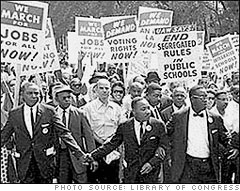After Whitby
The decree of Whitby did not immediately change the whole face of British Christianity. For hundreds of years there were pockets of resistance to the Roman mission, notably in Devon, Cornwall and Scotland. For instance on Iona, the Celtic monastic community was not finally dispersed until the Benedictine Abbey was built in the 13th century.
The decree of Whitby did not immediately change the whole face of British Christianity. For hundreds of years there were pockets of resistance to the Roman mission, notably in Devon, Cornwall and Scotland. For instance on Iona, the Celtic monastic community was not finally dispersed until the Benedictine Abbey was built in the 13th century.
The
period of resistance ( and renewal) was marked by some of the greatest
achievements of the Celtic tradition with illuminated gospel manuscripts
like the Book of Kells, and high standing crosses with Scriptural
imagery on one side and creation imagery on the other. The general
picture throughout Britain and Ireland however, was of gradual
conformity to the Roman mission. The riches of the Celtic churches
spirituality was guarded in the teachings of an oral tradition passed
down among the laity for hundreds of years.
Increasingly,
and especially after the 16th century Reformation in Britain, the
Celtic tradition again met with resistance. The reciting of their
prayers was discouraged and even banned because they were regarded as
pantheistic and pagan in origin. In Scotland, a combination of Religious
persecution and the 19th century Highland clearances, (in which
thousands of families were torn from their ancestral lands to make room
for large scale sheep farming,) resulted in the fragmentation of the
Celtic culture. This loss of the collective memory, meant that the oral
tradition began to be lost.
However,
even this did not represent the death of the Celtic tradition however.
Attempts were made to transcribe and collect the prayers, in Scotland in
Alexander Carmichael's Carmina Gadelica (1900) and in Ireland in
Douglas Hyde's Religious Songs of Connacht (1906).
Carmichael and Hyde were part of a revival of Celtic art and literature, and others were finding new ways to express the spirituality of the Celtic tradition. Although they had ensured that written copies of some of the prayers were preserved, by the 20th century, their living use had virtually disappeared.
Carmichael and Hyde were part of a revival of Celtic art and literature, and others were finding new ways to express the spirituality of the Celtic tradition. Although they had ensured that written copies of some of the prayers were preserved, by the 20th century, their living use had virtually disappeared.
Despite
the previous centuries of resistance to the Celtic tradition, the 20th
century saw a growing toleration of the Celtic tradition and an
increasing depth of appreciation for its spiritual riches, and their
applicability for today. This included George MacLeod, who founded of
the Iona community in the Hebrides (and was at one time Minister of St.
Cuthbert's church).
Graphic example Celtic Cross and High Tower
reprint of living water article from 2009
Graphic example Celtic Cross and High Tower
reprint of living water article from 2009


























